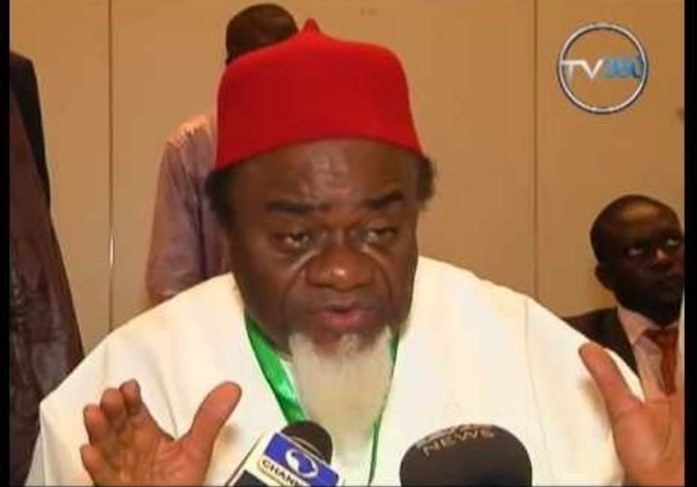Buhari a Coupist, His 1983 Coup Was to Derail Igbo Presidency – Ezeife
…Babangida’s 1999 plot blocked second chance
Elder statesman, Dr Chukwuemeka Ezeife, has provided some fresh insights into the 1983 military coup d’etat led by Gen. Muhammadu Buhari, which overthrew the democratically elected government of President Shehu Shagari.
The Buhari coup of 1983 was meant to short-change the Igbo people and keep them out of the presidency – a ploy which has continued till today.
Ezeife affirms that the key objective of the1983 military coup, which sacked the Second Republic’s President Shagari and enthroned Gen. Buhari, was to prevent former Vice President Alex Ekwueme from succeeding Shagari, hence derailing the emergence of a president of Igbo extraction – 24 years after the country’s civil war.
Ezeife, an astute politician, Havard-trained economist and former governor of Anambra State, expressed these views in an exclusive interview with The AUTHORITY newspaper at the weekend, on the heels of the 51st Anniversary of the nation’s first military coup.
According to Ezeife, “The then ruling National Party of Nigeria (NPN) had already resolved that Dr. Alex Ekwueme, who was the Vice President, would be given automatic presidential ticket, an arrangement which didn’t go down well with the political elite in the North, prompting the Northern military officers to stage a coup against the Shehu Shagari administration which was already doing a second term in office.”

Providing further insights into what he saw as the unending travails of Ndigbo in the post-war Nigerian state, the blunt-speaking and politician and economist revealed that the 1999 intervention by Gen. Ibrahim Babangida, which installed Chief Olusegun Obasanjo, was also a northern script to prevent former Vice President Ekwueme from succeeding former Head of State, Gen. Abdulsalami Abubakar.
Ezeife said: “The Buhari coup was meant to prevent the handover of power to Ekwueme. Then, this time again, the party we formed – we are the G-34 who formed the People’s Democratic Party (PDP). The party gave Ekwueme the candidacy unopposed, unchallenged”.
“Ekwueme, in consideration of fairness of the Ndigbo, said no; let’s go for a proper primary. Weeks to that proper primary, my friend and big helper, Babangida, thought of how to get back to power.
“He went and made a deal with Obasanjo that he wants to step aside and after four years of Obasanjo he returns. That was how what was for Ekwueme was given to Obasanjo. So, that was what happened to us”.
Taking a look at the big national picture, Ezeife noted the 1914 North-South amalgamation by the British was to use Southern resources to cover the deficit in the North but observed that even today, the resource gap was even wider, a scenario that makes the North more desperate for resources than the South.
His words: “What was the immediate cause of amalgamation? It was to use the surplus resources of the South to cover the deficit of the North. What did the amalgamation do? It took Igbo resources, Igbo ability to develop the whole.
“That’s what amalgamation achieved. The resource gap today is wider than what it was in 1914, with the North more desperate for resources than the South”.
The AUTHORITY recalls that the military coup of December 31, 1983, which was coordinated by key officers of the Nigerian military, led to the ouster of the democratically-elected government of Shagari and the installation of Maj. Gen. Buhari (then General Officer Commanding, 3rd Armoured Division, Jos) as the Head of State.
Meanwhile, Babangida’s alleged intervention in 1999 led to the emergence of Obasanjo, against the much-anticipated ascendancy of Ekwueme, the arrowhead of the G-34 that morphed into the PDP.
The later scenario is viewed by some observers as a strategic pacification project of the South West by the North, following the nullification of Chief Moshood Kashimawo Olawale (MKO) Abiola’s earlier “successful” presidential bid and mounting threats of secession by the region.
More than 46 years after the Nigeria-Biafra fratricidal civil war, the Igbo people of Eastern Nigeria remain the only major tribe in the country which has not held power at the presidency – whether in military or civilian garb.







